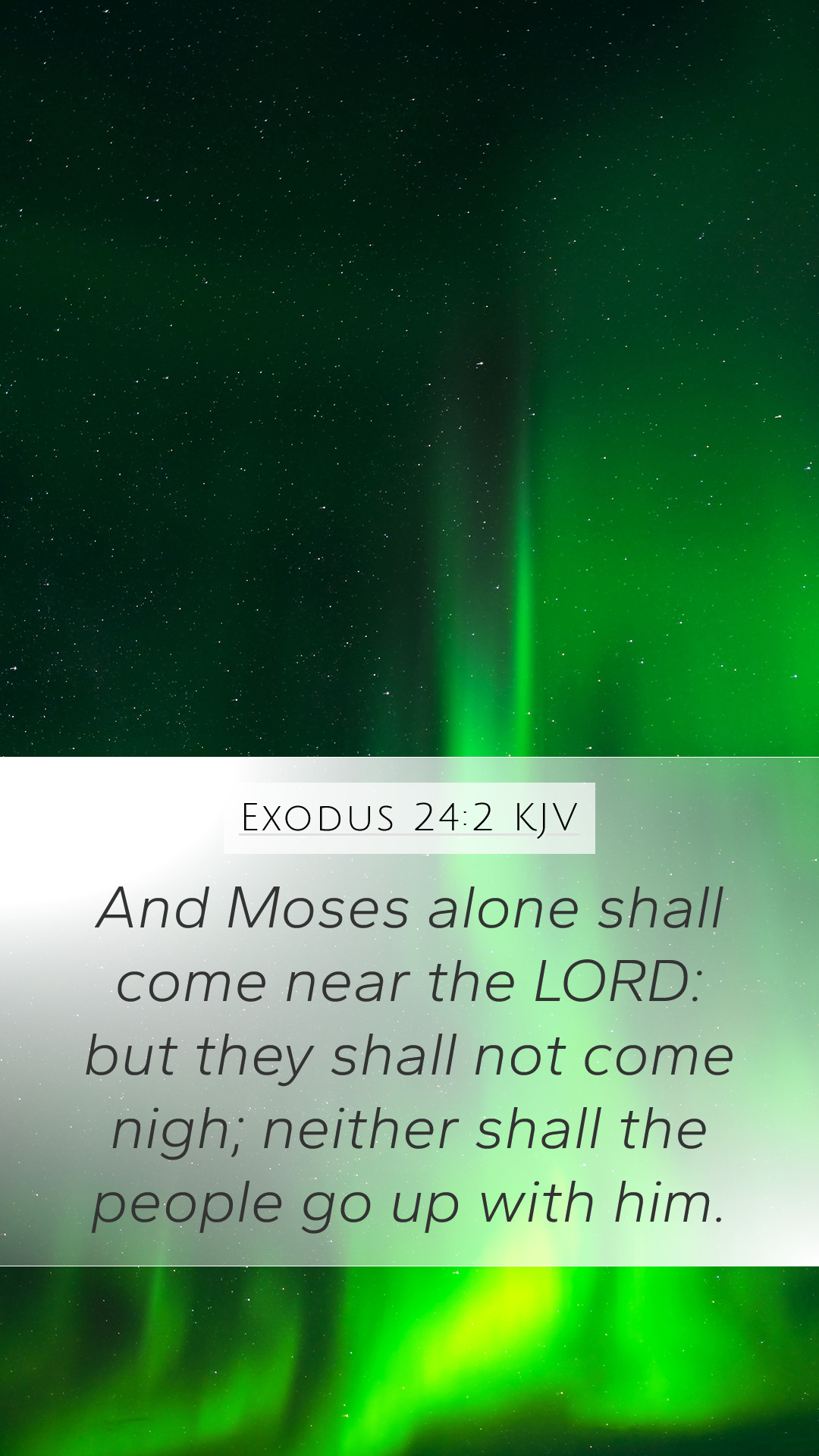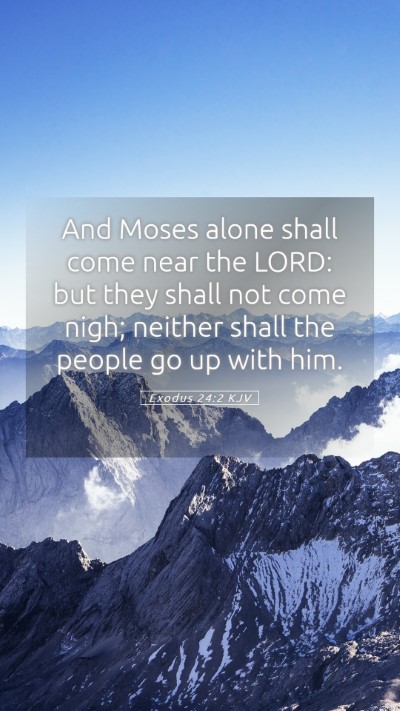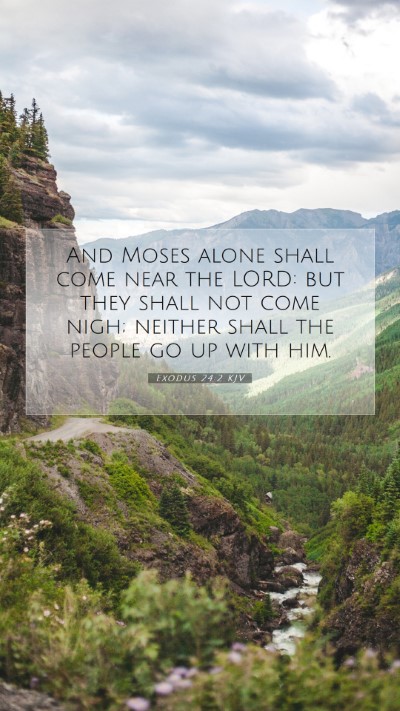Exodus 24:2 - Bible Verse Meaning and Commentary
Bible Verse: Exodus 24:2 - "And Moses alone shall come near the LORD: but they shall not come nigh; neither shall the people go up with him."
This verse is pivotal in understanding the relationship between Moses, the people of Israel, and God during a critical moment in their journey towards the Promised Land. Here, we explore the deeper meanings and interpretations of Exodus 24:2 as reflected in various public domain commentaries.
Meaning and Interpretation
The command for Moses to approach God alone denotes a unique role he plays as a mediator between God and the people. Such mediatorship highlights the importance of divine authority and the sanctity of God's presence.
Moses as Mediator
Matthew Henry emphasizes that Moses represented the people before God, underscoring his vital role as a leader. His exclusive access to God reflects the seriousness of the covenant and the gravity of the revelation that God would provide.
The Holiness of God
Albert Barnes points out the need for boundaries. God's holiness necessitates that the people maintain a respectful distance. This illustrates the principle that approaching God requires reverence—a theme echoed throughout Scripture.
Exclusivity and Authority
Adam Clarke discusses how Moses' solitary approach signifies the authority bestowed upon him. The restrictions placed on the people sway their focus to the sacredness of God's communication, enhancing their understanding of divine authority.
Key Themes and Insights
- Divine Presence: The sanctity of God’s presence highlights the seriousness with which one must approach Him, emphasizing respect and reverence.
- Moses’ Leadership: The leadership of Moses is pivotal; it is through him that the laws and instructions from God are conveyed to the Israelites.
- Boundaries in Worship: Establishing boundaries serves to remind the people of God's holiness and their own limitations.
Historical Context
Understanding the historical context surrounding Exodus 24 provides deeper insights into this verse. The Israelites had just been liberated from slavery in Egypt and were in the process of establishing their identity as God's chosen people. Thus, Moses’ approach to God is crucial as it sets the stage for the giving of the Law.
Significance of Covenant
The event taking place in Exodus 24 is part of a larger covenant between God and Israel, which is foundational to their identity and purpose as a nation. The role of Moses as a mediator symbolizes the need for a bridge between the divine and humanity.
Application of the Verse
For contemporary readers, Exodus 24:2 encourages believers to recognize the importance of reverence and respect when approaching God in prayer and worship. It prompts an understanding that certain roles, like that of leaders, carry significant responsibility and authority.
Links to Modern Bible Study
This verse invites deeper reflection and can serve as a study topic in Bible study groups, aiding individuals in learning about the character of God and the nature of human leadership in faith contexts. Online Bible study resources can provide further insights into how the principles found in this verse apply today.
Cross References
- Exodus 19:12 - Boundaries set for worship
- Hebrews 9:7 - The role of the high priest in approaching God
- Numbers 16:5 - The authority of Moses
- 1 Timothy 2:5 - Jesus as the mediator
- Revelation 1:6 - Believers as a royal priesthood
Final Thoughts
The interpretation of Exodus 24:2 allows for a richer understanding of the Scripture's message. As we explore the verse through the lens of commentary, we uncover the themes of divine reverence, the role of the mediator, and the exclusivity of God's presence. Delving deeper into these themes can significantly enrich one's Bible study insights and offer a profound appreciation for the Word.
This commentary serves as an essential tool in gaining a comprehensive Biblical exegesis of the verse, and it encourages readers to engage with the text meaningfully, allowing the ancient wisdom to guide contemporary faith practices.


